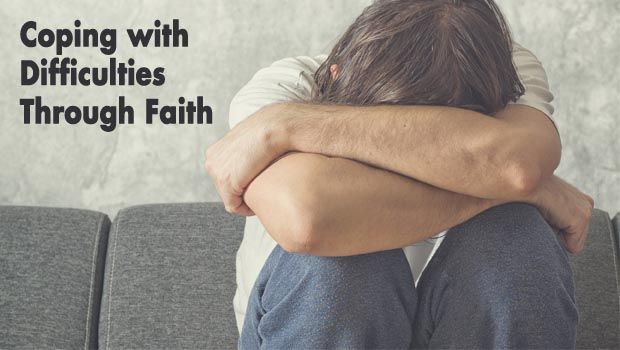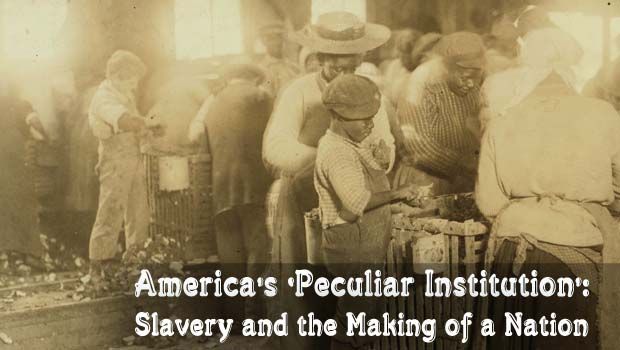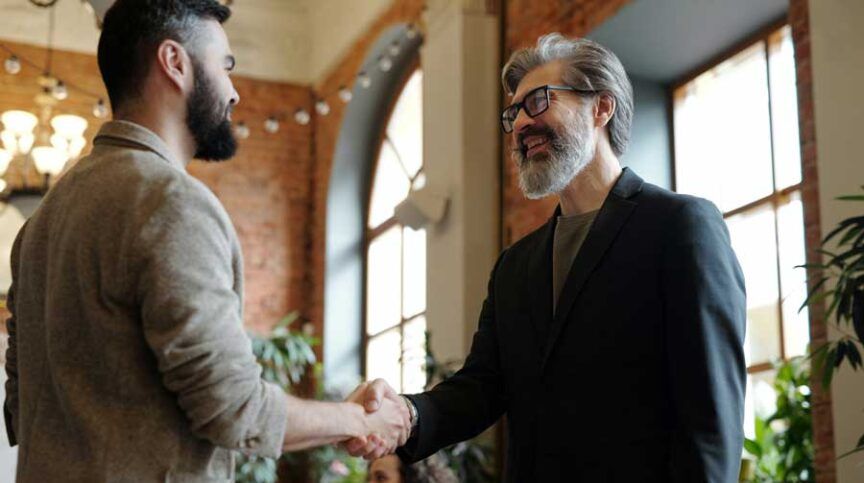Mosques and other Islamic organizations and institutions have never been more active and widespread than they are today. The imperative for greater engagement in society, and increased activities to serve the needs of the growing community, have also never been more pronounced. Muslims have launched initiatives like One America and Canadian Muslim Vote to encourage participation in federal elections. Mosques like the Islamic Society of Central Jersey have opened their doors to those of other faiths in events like “Common Ground Connection,” and others like the Ummah Mosque in Halifax and Worcester Islamic Center have held open houses and “Meet a Muslim” days to welcome non-Muslim neighbors, show them hospitality and friendship, and answer their questions about Islam. Individual Muslims, on their own initiative, have held events like “Meet a Muslim Family” or “Talk to a Muslim” in the wake of growing Islamophobia. Mosques, Islamic centers, and organizations have participated in soup kitchens and meal programs for the homeless and needy, as well as running food banks and free medical clinics for the underserved like the Muslim Welfare Center in Scarborough in Toronto and at the Islamic Association of Collin County in Plano, Texas.
Often, the biggest obstacle in the way of any institution’s ability to properly serve the needs of its community is a lack of knowledge and understanding of what those needs really are.
Many mosques and Islamic centers have educational programs including daily or weekly classes on various topics, as well as classes catering especially to the youth, in addition to organizing and coordinating programs for Muslims as well as non-Muslims. Conferences like those held by ICNA, ISNA, Reviving the Islamic Spirit, and ILEAD promote education and awareness. Various Muslim media initiatives like The Muslim Link, Message International, Islamic Horizons, Illume, AltMuslim, and others, provide a voice to communities, aim to correctly represent Muslim concerns and interests, and provide an alternative to mainstream media.
Yet at the same time, Muslims are facing challenges that need to be addressed more than ever before. While many institutions are active in promoting engagement and serving community needs, others are not doing much. “I think the Muslim community is finally waking up,” says Azra Baig, an elected member of the Board of Education in South Brunswick, New Jersey. “9/11 was definitely a wake-up call, but I think people have just gotten more comfortable after that. But I think with what has happened recently at San Bernardino – the terrorist attacks and the Islamophobia and anti-Muslim remarks by candidates for elections, I think people are finally waking up to the need to get more engaged and more involved. I’ve heard it so many times in the polls – when someone knows a Muslim, they are more comfortable regarding Islam and different aspects, but if their only source of information is the media, then I don’t blame them for being scared, how else are they learning about Islam and Muslims?” While many great efforts are being made by organizations and individuals, a lot more needs to be done. Below are a number of suggestions based upon my discussion with various activists, and community leaders and members, and my research into actions our organizations can take to better meet the challenges of today.
Create Awareness Among the Leadership
For any effective changes to take place in our institutions, it is vital that our leadership be well-informed and aware of the needs and problems of the community they serve. Many mosque boards are made up of first generation immigrants, those who have not grown up in Western societies and therefore do not fully understand the problems faced by the youth, are not inclined to promoting political participation, and tend to be somewhat conservative and resistant to change. Also, says Asif Hirani, Program Director at WhyIslam, many of them “do not understand the importance of interfaith activities because they may not be as important in their Muslim majority countries.” He adds, “We need to create awareness in the leadership of the masjids and among board and shura members. In terms of keeping our masjids open, we also need to change the culture of our masjids.” For effective civic engagement and educational and counseling activities to properly meet the needs of the community, it is essential that board members and community leaders be those with an awareness and understanding, based on experience, of present-day Western society and culture.
Conduct a Survey About Community Needs
Often, the biggest obstacle in the way of any institution’s ability to properly serve the needs of its community is a lack of knowledge and understanding of what those needs really are. Without adequate information, any available funds are just funneled into activities which may or may not be relevant or adequately serve the needs of the community. Each region and each community has different needs based on its demographics. Masjids with a membership primarily of professionals will have different needs from those of a lower income community. Those with more third generation immigrants have different needs than those with many newly arriving immigrants. It is important to know who makes up the community, what the most pressing needs are, and what issues are important to community members.
Knowing all of this can help an institution or mosque cater to the specific needs of the community in terms of designing classes or lectures, mobilizing support for social services, acting as advocate at city council meetings, or presenting issues to boards of education. As such, a survey should include questions about marital status, household composition including gender and age of each family member, ethnicity, country of origin, length of residence in the U.S., education, professional or employment status, and income range. The survey can also solicit information about what social, economic, and political issues the respondents consider important, what they expect their institutions to advocate for them, and on what issues and/or topics they want educational opportunities by way of lectures, workshops, or classes.
Surveys can be in paper form or provided on an Islamic center’s website. Additional methods can be used in tandem, such as assigning individuals or teams to solicit the information from community members; events and meetings can also be held to solicit information, discuss issues, and brainstorm activities and services to meet community needs.
Designate Teams or Individuals for Specific Tasks
Once a community’s needs are identified, tasks must be prioritized and funds and resources channeled accordingly. Depending on the size of the community, the amount of work needed for a particular task, and the resources available, the institution must designate either an individual or a team for each task or project. For example, an individual or team should be made responsible for social justice issues, and for representing the mosque or the community at city council meetings or in meetings with regional representatives. Another team could be assigned to deal with media outreach, and so forth. “I go to meetings and sometimes I’m the only Muslim over there,” says Rameez Abid, Communications Director for the ICNA Council for Social Justice. Regarding Muslim advocacy for social justice issues like homelessness, hunger, and civil rights, he says, “I think one person dedicated to this cause can do it as a volunteer. If they can’t find someone to do it, I suggest hiring someone part time to do it. It is very important.”
It is important that an organization assign specific individuals or teams for the various tasks so that no one person or team is overwhelmed with too many responsibilities. In that way, also, the interests, skills, and expertise of available individuals are utilized in an effective way. “Religious leaders have their own roles to play and they are already overworked,” says Amira Elghawaby, Communications Director at the National Council of Canadian Muslims (NCCM). “The roles within mosques and institutions have to be broadened to bring in more people who are keen in different areas of work and so associations and mosques can foster greater involvement because they often do have some funding available to support this kind of work.”
Elghawaby says this could include the mosque hiring and training their own people to help represent the community and provide a Muslim perspective at municipal and other local events. They can also hire or train individuals to focus on the local media, foster relationships, and thus represent the community in that way. There can be positions open to interns and volunteers to assist the person(s) assigned to the job. This is a good way to get students to fulfill their volunteer hours and internship requirements by benefiting the community.
Government and the Media Relationships
Muslims need to build good relationships with their government representatives at the local and regional level in order to communicate the Muslim perspective and concerns. This requires inviting local and state officials to the mosque or other Islamic events, meeting with them about specific concerns or priorities, and attending important events organized by them. Azra Baig says, “It’s important because they want to hear from us and they do represent us. If they are going to support us, we need to support them on the various issues. We need to be there when they have their press conferences, their petitions, we have to vote and a vote helps – especially this coming election the Muslim vote is going to matter.”
Baig says building a good relationship with the media is also vital because “the media is also our voice.” This includes issuing press releases and sending out invitations for events. An effective media strategy also means following mainstream media reporting about Muslims and responding when relevant or necessary. Nazim Bakshn, a researcher and journalist, says that engagement with the media includes making spokespersons, analysts, and scholars available to provide commentary and analysis when events involving or relevant to Muslims take place.
Represent Community in the Mainstream
Our institutions and mosques must step out of the traditional roles they are used to and be ready to rise to the next level. They of courses need to serve as a place of worship and spiritual guidance for the Muslim community, but also as a platform for activism and advocacy. As part of a society where Muslims are a minority, it is easy for our institutions to stay in their comfort zones, insular and disconnected to the larger community. But it is increasingly important for our institutions to step out of their own circle and be a part of the mainstream. This includes advocating causes that benefit the wider society, transcending boundaries of race, ethnicity, and religion. It also means representing the concerns and interests of the Muslim community at city council meetings or presenting issues to the board of education. Rameez Abid notes, “We cannot be isolationist,” adding, “In order to secure our rights, we have to secure others’ rights as well and that is part of our deen.”
Build a Stronger Social Media Presence
In this digital age of pervasive social media, it is important to utilize the tools of the time to spread our message and benefit our communities more widely. “Many a time, many members of the community are not aware of the activities at the masjid,” says Muhammad Ibrahim Ali, an Arabic instructor at Taqwa seminary and Bayyinah. “So for example the event is over and they get to know [too] late – so it’s very important for them [organizations] to improve their social media presence and not only to improve, they have to compete with the other organizations – even utilizing modern methods of media marketing.” Our Prophet (pbuh) also used the technique of his time to get his message across to a wider audience. For instance, he went to Mount Safa to call out to people to deliver his message when he wished to invite the Quraish openly to Islam. The custom was to go to Mount Safa when one had an important message to announce to the people at large.
Come Together and Unite with Others
Although each institution works independently, it is vital that links be maintained with other institutions and that the institutions stand united on a variety of causes, cooperating by sharing resources, expertise, information, ideas, and personnel. “Unity is something that strengthens all communities,” says Elghawaby. “I think that we need to come together at the local level for sure to find out what’s going on in our communities and who is doing what… how can we either replicate or complement or contribute to these efforts on a professional national scale and in a way that the work that is done is not lost in someone’s mind, it becomes part of our institutional memories.”
Professionalism and Concerted Effort
Organizations today base their operations on goal-setting, efficiency, productivity, and streamlining of systems. “I think the really most important thing is to approach these issues with a very high degree of professionalism,” says Elghawaby. She says one of the challenges is that there will always be well-meaning individuals who work as activists on one cause or another, and that this is valuable work. But the drawback is “when an individual undertakes this work, not with an institution, then there is going to be the loss of the memory of what they have done, so there is no institutional memory to the type of work or relationships they fostered. Once they lose interest or once they don’t have time to continue their work, it sort of disappears so that is one reason why it is so critical to engage institutions.”
Elghawaby continues, “I think it’s really important that this work is done with professionalism and with real goal-setting in mind. It cannot be done in a way that’s sort of ad hoc. It really has to be a concerted effort.” Her organization has recently launched an initiative called “Stronger Together” which aims to galvanize Canadian Muslims in every major city to be more civically engaged, and to advocate both on local and national issues. The organization has put up a pledge on its website inviting people to commit to greater activism. The organization will then map out all those who took the pledge and cluster them together in teams according to their geographic areas, and then provide support and training on how to get involved in various issues. Their first campaign is about a Canadian anti-terror bill, C-51, and will be encouraging participants to approach their local parliament members and talk to them about the legislation. This is a good example of how institutions can work in an organized and efficient manner to promote more civic engagement. It is important for our institutions to learn from one another and pool resources, ideas, and expertise to better serve the community. Our organizations must rise to the next level, promote civic engagement and meet the various needs of the community.






